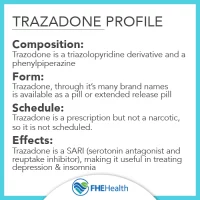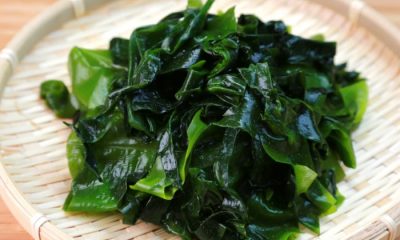Health
6 Benefits of conjugated linoleic acid and side effects

Discover the 6 Benefits of conjugated linoleic acid and side effects.
While many hear “butter and beef” and immediately think of heart attacks and weight gain, the truth is that all types of natural fats are healthy and even beneficial when you eat high-quality versions of them and take them in moderation, In particular, the benefits of conjugated linoleic acid are necessary for our diet.
The body needs all three types of fats (yes, even saturated fats!) For optimal health, as they all have various functions, from pregnancy to digestion to brain function.
Not only is it true that eating fat doesn’t make you fat, but certain types of healthy fats are some of the best fat-burning foods available.
But quality is very important for fats, especially those that come from animal products; These types of acids are known to fight cancer, block weight gain, and help build muscle, and are found almost exclusively in the high-quality meat and lard of healthy grass-fed cows or other animals.
According to multiple investigations, the benefits of conjugated linoleic acid include:
• Muscle enhancements and muscle strengthening
• Anti-cancer effects
• Bone building benefits
• Growth and development support
• Reverse atherosclerosis (hardening of the arteries)
• Improve digestion
• Reduce food allergies and sensitivities
How does conjugated linoleic acid work?
All types of fats (lipids), whether they are products of animal origin, eggs, dairy products, oils, nuts, seeds, or coconuts, are made up of fatty acids.
Some fats are considered essential because the body cannot produce them on its own, while others are not essential because the body can synthesize them from other nutrients.
The essential fats that we need to obtain from our diet include omega-3 polyunsaturated fatty acids (found in fish, shellfish, eggs, and some nuts or seeds) and omega-6 polyunsaturated fats (found mainly in vegetable oils, nuts, and seeds ).
These two types have important, but somewhat opposite, effects on the body; Omega-3s are known to be anti-inflammatory, while omega-6s are inflammatory.
We need both types of essential fats to balance our immune, hormonal, digestive, and nervous system functions, which is why there are so many risks to a low-fat diet when someone stops consuming enough healthy fats.
Ideally, the diet would be the same in terms of omega-3 and omega-6 fatty acid intake, but the standard American diet is much higher in omega-6, which is why it is known to be so “inflammatory.” Sadly, inflammation is at the root of most chronic diseases, which include cancer, heart disease, diabetes, depression, autoimmune disorders, and dementia.
Among the different types of fatty acids, there are saturated, monounsaturated, and polyunsaturated fats, which are three names used to describe the chemical structures of fats.
Each type provides different benefits and functions thanks to its particular effects on the various systems of our bodies. All fatty acids are chains of carbon atoms attached to a hydrogen bond.
When each carbon acid binds to hydrogen, saturated fat is formed; If a pair of carbon atoms form a bond, monounsaturated fat is formed; and when there are more than two unsaturated bonds, polyunsaturated fat is formed.
We usually describe a food source as a type of fat (such as olive oil being monounsaturated or beef being saturated), but the truth is that almost all foods are made up of various types of fat.
The main omega-6 fat is called linoleic acid, and it is found in foods that include grains and vegetable oils (such as corn, safflower, sunflower, or canola oil).
Currently, it is known that Omega-6 oils are excessively consumed and, therefore, dangerous, mainly by people who consume a large number of processed foods and are made with low-quality oils.
Benefits of conjugated linoleic acid
1.- Helps with weight loss and fat burning
You may find it hard to believe, but it turns out that butter is a fat-burning food, CLA has been shown to help with fat loss in many animals and some human studies, which is why in its concentrated form it is one of the most popular weight loss supplements in the world.
In human studies, the results of CLA on weight loss have been somewhat mixed, although still promising.
One study found that supplementation of a CLA blend in overweight and obese people decreased body fat mass and increased lean body mass.
Other studies have shown similar results and that CLA also has no adverse effects on overall blood lipids, inflammation levels, and insulin response in healthy, overweight, and obese adults.
Some people are believed to experience better results than others due to factors including a combination of CLA isomers versus individual isomers, CLA dose and duration of treatment, sex, weight, age, and metabolic status of the subjects.
One of the possible mechanisms by which CLA reduces body fat mass could be that it decreases energy consumption or increases energy expenditure.
One study showed that mice supplemented with a CLA blend for four weeks reduced their food intake and experienced improvements in liver function, although studies have not shown this same effect yet in humans.
2.- Regulates blood sugar and helps improve insulin function
There is strong evidence that there is an inverse association between taking the benefits of conjugated linoleic acid in someone’s diet and the risk of diabetes.
The hypothesis is that CLA may be involved in the regulation of insulin; We also know that the best food sources of CLA, including healthy fats like butter or grass-fed beef, can stabilize blood sugar and help someone follow a low-sugar, low-carb diet that is beneficial for controlling diabetes.
3.- Improves immune function and could help fight cancer
Conjugated linoleic acid has shown immune-enhancing effects and anticancer activities in several animal studies.
The CLA in foods with saturated fat may offset the adverse effects of saturated fat content and benefit everything from blood sugar control to hormonal regulation to natural cancer prevention.
Research repeatedly shows that the quality of fatty acids in a person’s diet is very important in reducing overall cancer risk, and conjugated linoleic acids (especially rumenic acid) have been shown to promote health in several ways, especially by decreasing inflammation.
Lower inflammation is a sign of less free radical damage (or oxidative stress) that is linked to a lower risk of cancer.
It appears to modulate immune and inflammatory responses, as well as improve bone mass.
Research on the effects of conjugated linoleic acid in preventing breast cancer is somewhat conflicting, but some preliminary research suggests that a higher intake of CLA from natural foods is linked to a lower risk of developing breast cancer.
Other study results suggest that it may be beneficial in fighting cancer of the digestive organs and may also improve detoxification through healthier liver function.
4.- Reduces allergies and asthma symptoms
Consuming foods high in conjugated linoleic acid or taking CLA supplements for 12 weeks appears to improve symptoms and general well-being in people with seasonal allergy symptoms.
Similarly, some research shows that for people with asthma, CLA may be a natural treatment method for asthma-related symptoms; twelve weeks of supplementation appears to improve airway sensitivity and the ability to exercise.
5.- Improves the symptoms of rheumatoid arthritis
Early research suggests the benefits of conjugated linoleic acid are good for reducing inflammation and therefore autoimmune disorders like rheumatoid arthritis.
Taking conjugated linoleic acid alone or in conjunction with other supplements such as vitamin E benefits those with arthritis by reducing symptoms, including morning pain and stiffness.
Markers of pain and inflammation, including inflammation, have been improved for adults with arthritis taking CLA compared to pre-treatment symptoms or people not taking CLA, meaning that CLA can treat arthritis in a natural.
6.- It could improve muscle strength
Although the findings have also been somewhat conflicting, some research shows that taking conjugated linoleic acid alone or in conjunction with supplements such as creatine and whey protein can help increase strength and improve lean tissue mass.
This is why CLA is often added to some bodybuilding supplements, protein powders, or weight loss formulas.
The Best Sources of Conjugated Linoleic Acid
The main food sources rich in conjugated linoleic acids include the following:
• Grass-fed butter (ideally organic)
• Whole dairy products, preferably raw, such as cream, milk, yogurt, or cheese
• Grass-fed beef (ideally organic)
• It is also found in dairy products from sheep or goats, in addition to cows
• Found in smaller amounts in grass-fed lamb, beef, turkey, and shellfish
Side Effects of Conjugated Linoleic Acid
• CLA is considered safe when eaten as part of whole natural foods or taken by mouth in medicinal amounts greater than those found in food.
For some people, taking CLA supplements may cause side effects such as an upset stomach, diarrhea, nausea, and fatigue.
• Regarding conjugated linoleic acid for children, it is best to avoid supplementing your children as there is not enough evidence at this time to know if long-term use is safe.
However, food sources like butter and meat are safe and encouraged, as they provide not only CLA, but also important nutrients for growth and development, including various vitamins, minerals, and proteins.
• If you are going to have surgery or have a history of poor liver function or bleeding disorders, be aware that supplementation with CLA may not be safe.
Conjugated linoleic acid can slow blood clotting and increase the risk of bruising and bleeding, but re-eating foods with CLA should not pose a risk.
Can you get linoleic acids through supplements?
• It’s also possible to get CLA from supplements, but as with most nutrients, CLA in supplement form won’t necessarily have the same health effects as CLA from real, natural foods.
The types of CLA found in supplements may also not be the most effective types; whole foods are made from c9, t11 CLA, while many supplements are high in t10, c12 CLA.
• While CLA supplementation has shown positive effects in controlling the risk and symptoms of some diseases, most may lack high levels of rumen acid, which is the predominant form of CLA found in natural foods
Health
9 Benefits of strawberries and side effects

Table of Contents
Health
7 Benefits of Epazote and side effects

Table of Contents
Discover the 7 shocking health benefits of Epazote and side effects.
Epazote, also known as paico or acahualillo, is a widely used medicinal plant, as its essential oils contain vermifuge, antibiotic, digestive properties, and strengthen the immune system.
This plant, whose scientific name is Chenopodium Ambrosioides, grows spontaneously in lands that surround the houses, it has elongated leaves of different sizes and dark green, its flowers are small and whitish.
Epazote can be bought in certain markets or health food stores, in its natural form, in dehydrated leaves, or essential oil.
Because it is considered a plant with a degree of toxicity, it should preferably be used under the guidance of a health professional, in addition to the use of tea from its leaves instead of essential oil, since it contains a higher concentration of potentially toxic substances.
Health Benefits of Epazote
Although epazote is a plant that is widely used in traditional medicine, it has few studies that confirm its properties in the body.
Despite this, several investigations have been carried out with this plant in animals, concluding that it has effects such as:
1. Eliminate intestinal parasites
This is one of the most popular uses of epazote and, according to some human studies, the use of this plant has a strong action against different intestinal parasites, such as worms and tapeworms.
This action seems to be related to the main active substance in epazote, ascaridol, which is similar in efficacy to some antiparasitic drugs, such as Albendazole.
2. Benefits of epazote for immune system
According to research carried out in animals, the use of epazote extract seems to be able to regulate the production of some cells important for the body’s defense, such as macrophages and lymphocytes, strengthening the immune system.
The mixture of epazote leaves with milk is popularly used to help in the treatment of respiratory diseases, such as bronchitis and tuberculosis, due to the union of the strengthening effects of the immune system and expectorants that these substances possess.
Another common use of epazote is in the relief of inflammation, mainly joint problems, such as osteoarthritis. Additionally, the plant also helps relieve pain from inflammation.
This analgesic action was observed in the use of the alcoholic extract of the plant, which seems to act on the NMDA receptors.
4. Benefits of epazote for digestion
Although there are no studies that prove the action of this plant on poor digestion, this is one of the popular uses in which it is used the most.
According to its use, epazote tea can be taken after large meals, to improve digestion, as it could be able to increase gastric juice production.
5. Benefits of epazote for blood pressure
In Morocco, epazote is frequently used to help treat high blood pressure and, according to studies in mice, this property is due to the stimulation of type 2 muscarinic receptors in the heart that slightly decrease the heart rate. , in addition to relaxing the heart muscle.
6. Combat bacterial, viral, and fungal infections
Both the use of epazote extract and essential oil has shown a powerful antimicrobial action that is capable of eliminating various types of bacteria, viruses, and fungi.
7. Avoid osteoporosis
In some investigations carried out in laboratory mice, the use of the hydroalcoholic extract of epazote was able to prevent the loss of bone density and can be applied to prevent the onset of osteoporosis, especially in women who are close to entering menopause.
Is epazote used to treat coronavirus?
A study carried out in 2020 by the Oswaldo Cruz Institute, confirmed the hypothesis that the flavonoids present in epazote may be able to prevent the replication of the new coronavirus, accelerating the recovery and cure of COVID-19.
However, the study was conducted on a computer model and has not been tested in a laboratory, nor living organisms.
For this reason, the dose necessary for treatment is not known, nor are the possible side effects.
For this reason, no health organ recommends the use of epazote as a treatment for COVID-19 until new studies are carried out.
How to use epazote
The most common way to take advantage of the properties of this plant is by infusing its leaves, preparing a tea:
Epazote tea: place a cup of the fresh plant with the seeds in boiling water and let it rest for 10 minutes. Afterward, strain and drink a cup up to 3 times a day.
In addition to infusion, another popular way to use epazote is an essential oil, however, its use must be guided by a naturopath, psychotherapist, or a health professional with experience in the use of medicinal plants.
How to Make epazote tea
Ingredients
8 large stems and leaves of fresh epazote
2 quarts boiling water
Procedure
- Add epazote to boiling water and let simmer for 2 minutes.
- ove from heat and let steep for another 3 minutes.
- Strain and serve.
Side effects of epazote include irritation of the skin and mucous membranes, headache, vomiting, nausea, palpitations, damage to the liver or kidneys, visual disturbances, and seizures, in case of doses higher than recommended or for a time. longer than 3 days in a row.
Is epazote abortifacient?
In high doses, the properties of epazote can act by altering the contractility of the body’s muscles; For this reason, it can have an abortive effect in certain people, not advising its use in pregnant women.
Contraindications
Epazote is contraindicated in pregnant women and children under 2 years of age.
This medicinal herb can be toxic, requiring a medical indication to establish the recommended dose
Health
Contraindications and side effects of Trazodone

Discover the Contraindications and side effects of Trazodone.
Trazodone is used in a wide variety of disorders, although it is an antidepressant.
Being depression one of the most prevalent mental disorders worldwide and one of the major causes of disability, its treatment is a matter that the scientific community has taken into account for many years.
The suffering it generates requires sometimes immediate attention since it is one of the disorders with the highest risk of suicide and that generates the most pain both for the person and for those around him.
The treatment of depression is carried out from different areas, one of them being psychopharmacology.
One of the drugs used in the treatment of depression is trazodone, which we are going to talk about in this article.
Trazodone: what type of substance is it?
Trazodone is a psychotropic drug classified within antidepressants, substances that generate a neurochemical change at the brain level, causing alterations in the levels of certain neurotransmitters, specifically serotonin.
Among antidepressants, it is part and is the main representative of the group of serotonin-2A antagonists and reuptake inhibitors or SARIs, a type of atypical antidepressant.
This drug was designed in Italy in 1966 under the assumption that depression could be based on the existence of low thresholds regarding the perception of pain and suffering, being the product of the lack of integration of aversive experiences.
Trazodone has proven to be an efficient and effective drug in the treatment of depression, reducing passivity and inactivity, as well as the discomfort and suffering associated with said ailment, and facilitating an increase in mood.
However, in addition to this, it also has an anxiolytic and tranquilizing action.
This substance is considered a second-generation antidepressant, along with specific serotonin reuptake inhibitors (SSRIs), with which it shares part of its mechanism of action, and different dual antidepressants.
Trazodone is sometimes considered to be dual as it has two different effects, although they focus on the same neurotransmission system, compared to the rest, and in addition to an antidepressant effect, it also has calming effects.
How does it work? Mechanism of action of the drug
As we have indicated previously, trazodone is classified as SARI, having a somewhat special mechanism of action among the rest of antidepressants.
Trazodone acts at the serotonergic system level (like most antidepressants) in two specific ways.
In the first place, this substance produces a blockage of brain serotonin reuptake, in such a way that said neurotransmitter remains in the synaptic space for a longer time.
This supposes that it has an agonist effect on the synthesis and maintenance of serotonin at the brain level, it increases its levels (which are decreased during the depression and this is something that correlates with the decrease in the mood).
The aforementioned mechanism of action is the one used by SSRIs, which is why these and trazodone are related and sometimes the latter is included among the first.
However, trazodone has a second effect that differentiates it from other drugs, and that seems contrary to the previous mechanism of action.
And it is also that it acts as an antagonist of serotonin 5-HT2A receptors, preventing or hindering these receptors from being activated.
This second aspect is what makes trazodone have a slightly different profile and effects than other antidepressants.
Regarding its interaction with other neurotransmitter systems, it does not present great anticholinergic effects, something that has made this drug a better option than tricyclics (although the doses must also be regulated) in patients with cerebrovascular and cardiac pathology and dementias.
However, it must be taken into account that it can generate arrhythmias.
It also has a minor effect on the adrenergic (blocking some receptors) and histaminergic systems, something that can lead to the generation of side effects.
Main indications
The main indication for trazodone is obviously, as an antidepressant that it is, major depression. Its effectiveness is also high in those depressions that appear together with anxiety symptoms.
Its clinical utility has also been observed in other disorders in which there are components of anxiety or that are based on it, such as generalized anxiety disorder, Obsessive-Compulsive Disorder, or bulimia.
In addition to this, it has also been observed to be useful for the treatment of substance addictions, being a good alternative for patients with withdrawal syndrome to benzodiazepines, and in the treatment of alcoholism (including the presence of delirium tremens).
Another of its indications is insomnia, which is effectively reduced by increasing sleep time without greatly affecting the deep sleep phase.
Although in general, most antidepressants can have the presence of erectile dysfunction or ejaculation problems as a side effect, this effect does not usually occur in trazodone, which seems to generate an increase in libido and is even used as a treatment indicated in erectile dysfunction.
Finally, trazodone has been applied (largely for its relaxing properties) in some cases of schizophrenia, motor problems such as Gilles de la Tourette syndrome, the presence of manic episodes in bipolar disorder, and the behavioral disorders of Alzheimer’s. although a greater amount of study is required regarding the latter.
On a medical level, it has also been used as a sedative in HIV-infected patients and diabetic neuropathies, as well as in other disorders that cause pain such as fibromyalgia. It has a very slight effect at the level of muscle relaxant.
Side effects and contraindications
Trazodone is a very useful drug that has been used in multiple pathologies and disorders, both mental and medical.
However, it can have undesirable consequences in the form of side effects and is even contraindicated in some situations and pathologies.
Secondary symptoms, sedation, and fatigue, the presence of headaches, nausea, and vomiting, gastric disturbances (diarrhea or constipation), appetite disturbances, sweating, tremors (which may lead to seizures in some cases), are common. ringing, numbness, and vision problems.
In some cases, it can also cause chest and muscle pain, altered consciousness, breathing problems, and arrhythmias. Like other antidepressants, trazodone can also contribute to the genesis of suicidal ideation in the first moments of use.
Although, unlike other antidepressants, it does not seem to generate contributes to improving cases of erectile dysfunction or ejaculatory problems, the use of trazodone has been observed and associated with the appearance of priapism, erections that do not disappear on their own. alone and that cause pain to those who suffer from them (which may require urgent and even surgical treatment).
Although it is sometimes used in dementias and has a lower risk than tricyclics of generating heart problems, it requires a high degree of caution in its use and dosage carefully prescribed by the doctor, since it can generate arrhythmias.
It is contraindicated in patients who have just suffered a heart attack, as well as in those with liver or kidney disease.
Caution should be exercised in subjects with bipolarity because if the medication is not regulated, the consumption of trazodone can cause a shift from depressive to manic phase.
It is also contraindicated in people who have suffered from priapism or have Peyronie’s disease.
Finally, it must be taken into account that trazodone can be excreted in breast milk and transmitted through the placenta so that pregnant and lactating women have contraindicated its use.
-

 Benefits5 months ago
Benefits5 months agoThe Benefits of Joining Gym Lumolog – Improve Your Fitness & Health
-

 Food1 year ago
Food1 year ago10 + Benefits of carrot juice and side effects
-

 Health1 year ago
Health1 year ago50 Super Healthy (And Very Often Cheap) Foods
-

 Health1 year ago
Health1 year ago5 Shocking health benefits of kinkeliba and side effects
-

 Health1 year ago
Health1 year ago15 health benefits of soursop leaves tea and side effects
-

 Food1 year ago
Food1 year ago8 shocking benefits of leek juice and side effects
-

 Health1 year ago
Health1 year ago15 Benefits of lipton tea and side effects
-

 Health1 year ago
Health1 year agoBenefits of guava leaves Sensually












